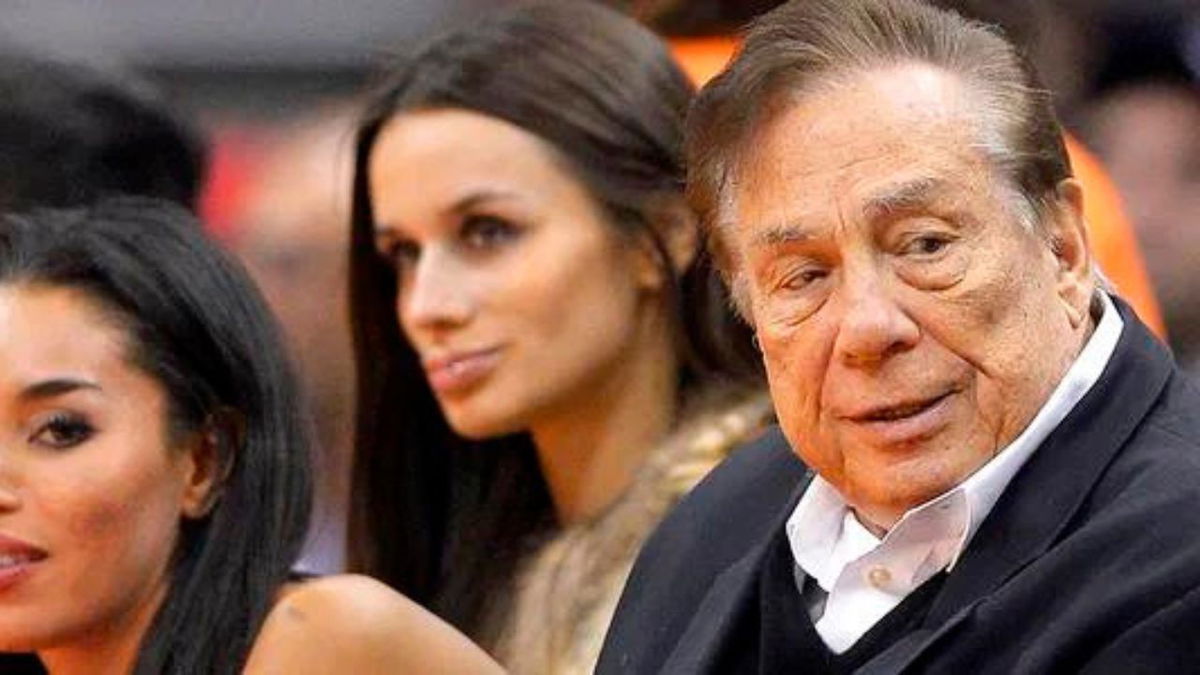

“Whoever was speaking on those tapes made me ill. And it was offensive. And I’ve never heard him speak like that in person.” To have the daughter, Jeanie Buss, of the man alongside whom you established an NBA empire denounce you goes on to show the magnitude of the scandal that rocked Donald Sterling’s life. His story was the classic ‘rags-to-riches’, as he went on from becoming the son of two poor Russian immigrants to securing a billion-dollar net worth through real estate, which allowed him to become the owner of the Los Angeles Clippers (then San Diego Clippers) during one of the NBA’s most exciting eras.
Watch What’s Trending Now!
Unfortunately, a tape recording of his voice made public in 2014 evolved into one of the biggest NBA scandals, bringing him down from grace quicker than it had taken him to rise. Therefore, without any further ado, let us dive into the man himself, and the shocking incident that went on to create a long-lasting impact in the NBA.
ADVERTISEMENT
Donald Sterling and his 33-year tenure with the NBA
Born Donald Tokowitz, the future billionaire changed his surname to ‘Sterling’ after adopting the belief that he could reap some financial benefits from it. Whether that was the case or not, the divorce attorney did end up achieving remarkable success in the field of real estate. By the time he was in his mid-40s, he had a comfortable net worth that could allow him to purchase and build up his own NBA franchise.
Sterling sought the help of Jerry Buss, then LA Lakers majority owner- father of the current owner, Jeanie Buss, to get into the league. Ironically, it was Sterling himself who made it possible for Buss to gain ownership of the Lakers as well after the latter sold his property to the real estate tycoon to generate enough money. Under Buss’s recommendation, he bought the then-San Diego Clippers for $12.5 million. Sterling was eventually able to get $1 billion after selling it, but more on that later.
Top Stories
Timberwolves Pay Heartfelt Tribute to Renee Nicole Good After Tragic Death at 37

Steve Kerr Issues Final Verdict On Draymond Green’s Warriors Future Amid Trade Rumors
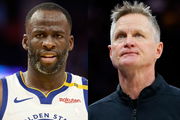
WNBPA Asserts Control Over Player Infrastructure Amid Ongoing CBA Uncertainty
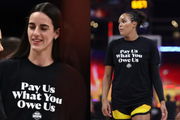
WNBPA VP Breanna Stewart Takes CBA Extension off the Table As Deadline Looms
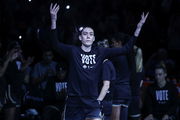
Sabrina Ionescu Speaks Out After Unrivaled Confirms 2026 Absence
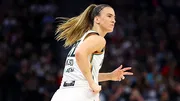
In the 33 years that he remained as the owner of the LA Clippers, Sterling couldn’t transform the franchise into a championship-contending one. According to The Boston Globe, the franchise lost 50 or more games on twenty-two occasions, 60 or more games over eight times, and a glaring 70 games during the 1986-87 season. Sterling, however, was able to boast securing one division title in 2013.
ADVERTISEMENT
Even before the scandal, Sterling got in trouble with the league. He received the biggest fine ever levied upon an owner back in 1982 after commenting, “We must end up last in order to draw first and get a franchise-maker.” After attempting to move the franchise from San Diego to Los Angeles the same year, he brought down an investigation upon himself. All of these incidents were proving to be signs that a major incident involving the owner would soon take place. Sure enough, it did.
ADVERTISEMENT
What was the scandal that resulted in Donald Sterling’s ban from the NBA?
In April 2014, TMZ Sports reportedly uncovered a conversation between the then 80-year-old Donald Sterling and his reported paramour, V. Stiviano. The 9 minutes and 27 seconds audio clip, had the LA Clippers owner arguing with Stiviano after she posted a photo of herself alongside Magic Johnson. As it turned out, Sterling did not highlight any additional reasons for why his partner should not have posed with Johnson, other than the fact that the former player’s skin color was different than his.
From making remarks like “It bothers me a lot that you want to broadcast that you’re associating with black people” to “I’m just saying, in your lousy f——- Instagrams, you don’t have to have yourself with, walking with black people,” Sterling’s unfiltered rant openly highlighted the disdain he held for the people who made up over 77% of the NBA in 2014.
It didn’t take long for the recording uncovered by TMZ Sports to become a national story. A statement released by Clippers president, Andy Roeser, revealed that Sterling and Stiviano had been involved in a legal battle. This led to rumors that it was Stiviano herself who leaked the tape to TMZ Sports.
ADVERTISEMENT
According to a report by StyleCaster, she had been purposely recording conversations with the franchise owner, as his early Alzheimer’s symptoms prevented him from remembering things for long. While it is true that she recorded the conversation, according to her attorney, Siamak Nehoray, the recording was leaked to TMZ by her friend after she forwarded it.
Whether Stiviano was the culprit or not seemed to matter little once the NBA world heard the contents of the tape. The eyes were especially focused on the LA Clippers, who were in the midst of their playoff series against the Warriors. Then head coach Doc Rivers ended up heading a 45-minute meeting, made up of players like Chris Paul and Blake Griffin who reportedly expressed their anger towards Sterling. While the question was raised of whether Game 4 should be boycotted, it was later dismissed by the head coach.
“Why should we let someone’s comments stop us from what we’re trying to do?” said Rivers. “We’re trying to do something here and we don’t want that getting in the way of what we’re trying to do.” Despite agreeing to a no-boycott, the players still protested by wearing their shirts inside-out during the pre-huddle.
ADVERTISEMENT
To support the Clippers roster in the same, players from the Miami Heat, including the ‘Big 3’ duo of LeBron James, Dwyane Wade, and Chris Bosh, also wore their shirts inside-out. The future NBA All-Time Scorer even went on to state, “There’s no room for Donald Sterling in the NBA.” Other reactions started to come in from Michael Jordan, Shaquille O’Neal, Charles Barkley, etc.
As for the man who was the subject of the tape himself, Magic Johnson made his reaction clear during an NBA Countdown interview with Sage Steele. Highlighting that he was hurt not only for himself but what the remarks meant for the African-American community and other minorities, the five-time champion declared, “He shouldn’t own a team anymore. And, he should stand up and say, ‘I don’t want to own a team anymore,’ especially when you have African-Americans renting his apartments, coming to his games, playing for him, and coaching for him. This is bad for everybody. This is bad for America. I’m really upset about it.”
ADVERTISEMENT
What actions did the NBA take after the Sterling Tape?
The widespread reactions from not only the fans but also some of the biggest names in the NBA meant that this issue could not be ignored for long. Four days after the release of the report by TMZ Sports, commissioner Adam Silver announced that Donald Sterling has been banned from the league for life. Additionally, not only was his involvement with the Clippers removed in all manners but he was also fined $2.5 million, the highest amount that one could be fined under the guidelines of the NBA constitution.
Here is NBA Commissioner Adam Silver issuing historic punishment for LA Clippers’ owner Donald Sterling.
Mindful of the precedent for dealing with owner discrimination, Phoenix Suns owner Robert Sarver issued an emphatic denial.
An ESPN story looms large.pic.twitter.com/UGuOLhsZXj
— Dan Lust, Esq. 🎙 (@SportsLawLust) October 23, 2021
In a CNN interview, Donald Sterling apologized for making the remarks, he also claimed that he was tricked into making them by Stiviano. Furthermore, Sterling reportedly launched a full attack on Magic Johnson, degrading him over his HIV diagnosis by stating, “I think he should be ashamed of himself.” The remarks on the ‘Sterling Tape’ and the CNN interview eventually compelled the NBA to charge him “with damaging the league,” according to ESPN.
ADVERTISEMENT
A vote call would decide on whether the then 80-year-old could stay as the Clippers’ owner or not. However, before the vote even took place, Sterling and his wife Shelly sold 100% of their ownership shares to Steve Ballmer, who continues to run the team even today.
What were the consequences of Donald Sterling’s exit?
After Donald Sterling was banned, the NBA started to improve for the better. The aftermath of the scandal highlighted the impact that NBA players can have in bringing about a reasonable change within the league.
ADVERTISEMENT
Rembert Browne, the architect behind the FX Series ‘Clipped’ covers the scandal, and went so far as to state that Sterling’s exit was “the beginning of the player empowerment movement.”
The 2014 incident showed that no team owner is immune from facing the consequences of their own actions. As a result, the principle of accountability increased at a steadfast rate. Racial discrimination came at the forefront, with even stars like Michael Jordan, who had previously chosen to not align themselves with a political viewpoint, making their voice known.
Players standing up in unity and openly opposing a common point showed that the same principle could be applied in regards to contract negotiations, having a voice in which team they would like to devote their careers to, etc.
While Donald Sterling’s exit brought increased accountability, it also created the notion that the same wasn’t a proper thing in the earlier days. The late Kobe Bryant even went on to state that “(Sterling) stunted equality and black-eyed every owner of every business where the majority of his employees are minorities. He hurt our trust in owners as a whole.”
All-in-all, it was proven that racism has no place in the NBA.
Before you go, remember to check out this crossover between BG12 and Georgia Bulldogs star Silas Demary Jr.
ADVERTISEMENT
ADVERTISEMENT
ADVERTISEMENT

